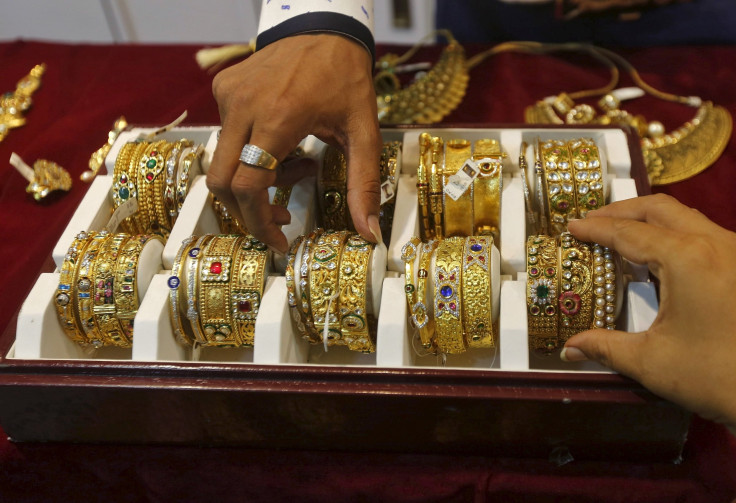Should I Buy Gold Now? Brexit Vote Drives Surge In ‘Safe Haven’ Metal Prices

Gold prices rose Friday by the most since the 2008 global financial crisis, after Britain’s vote to exit the European Union drove traders to the so-called safe haven mineral. As financial markets convulse this year in response to the Brexit, gold may continue to prove a reliable hedge, analysts said.
Gold climbed as much as 8.1 percent to almost $1,359 an ounce in early trading Friday before settling around $1,317 an ounce by 10:30 a.m. EDT. Prices have already rallied 20 percent since the beginning of this year amid growing concerns of a broader economic slowdown and a stronger U.S. dollar.
“In periods of uncertainty, gold is often one of the few perceived ‘safe haven’ assets with liquidity,” James Steel, chief precious metals analyst at HSBC Securities (USA), said in a research note Friday. “The uncertainty spurred by this [Brexit] vote will likely elicit sufficient gold purchases to buoy prices.”
In London by 11 a.m. local time (6 a.m. EDT), traders had swapped more than 23.5 million British pounds ($32 million) in vaulted gold and silver on the online gold trading platform BullionVault, more than two weeks’ worth of average trading in 2015, the Telegraph newspaper in the U.K. reported. And the platform’s new account openings were already twice the daily average this year by the same time.
The share prices of gold miners surged Friday. Both Barrick Gold and Newmont Mining were up more than 4 percent.
Gold prices this year could be in for less volatility than the currencies most affected by Britain’s exit, such as the British pound (GBP), Swiss franc (CHF) and Japanese yen (JPY). And as certain currencies rally, central banks could intervene to cap the appreciation of their respective currencies.
“Gold is not linked or dependent on any monetary authority or economic policy and so is almost entirely intervention-risk free,” HSBC’s Steel said. “This lack of intervention in gold combined with limited liquid ‘safe haven’ or ‘flight-to-quality’ assets is key to our analysis of higher gold prices.”
In the wake of the “leave” vote, the U.S. Federal Reserve may opt to keep interest rates on hold at both its July and September meetings. The Bank of England could cut policy rates to zero and make further asset purchases, while the European Central Bank may inject extra liquidity into the markets in the weeks ahead, Joni Teves, a UBS strategist, said in a note Friday.
That could send gold prices up to around $1,400 this year, although some market participants surveyed by UBS indicated “a test of $1,500 cannot be ruled out,” Teves said. “Ultimately, there should be more room for upside [in gold prices] from here, given the move lower in yields, and as investors turn to gold as a safe haven amid elevated uncertainty and market volatility,” she said.
Still, personal financial experts have warned that gold and other metals remain risky investments for individuals, particularly retirees. “Gold itself doesn’t produce anything,” Eric Meermann, a portfolio manager with Palisades Hudson Financial Group, previously told AARP the Magazine. “It just sits there — a form of money for people who don’t trust other forms of money, like cash or investment securities.”
© Copyright IBTimes 2024. All rights reserved.





















